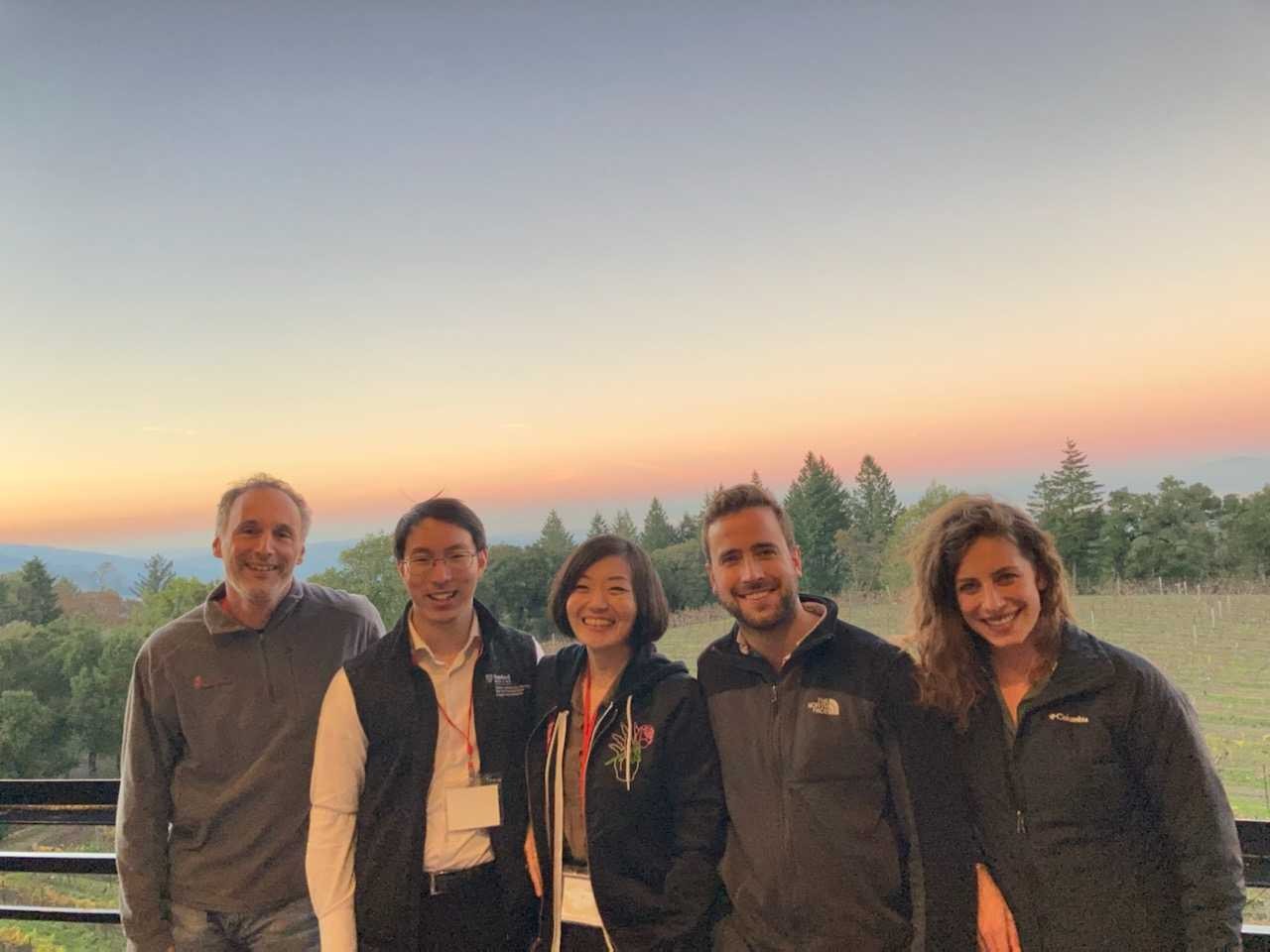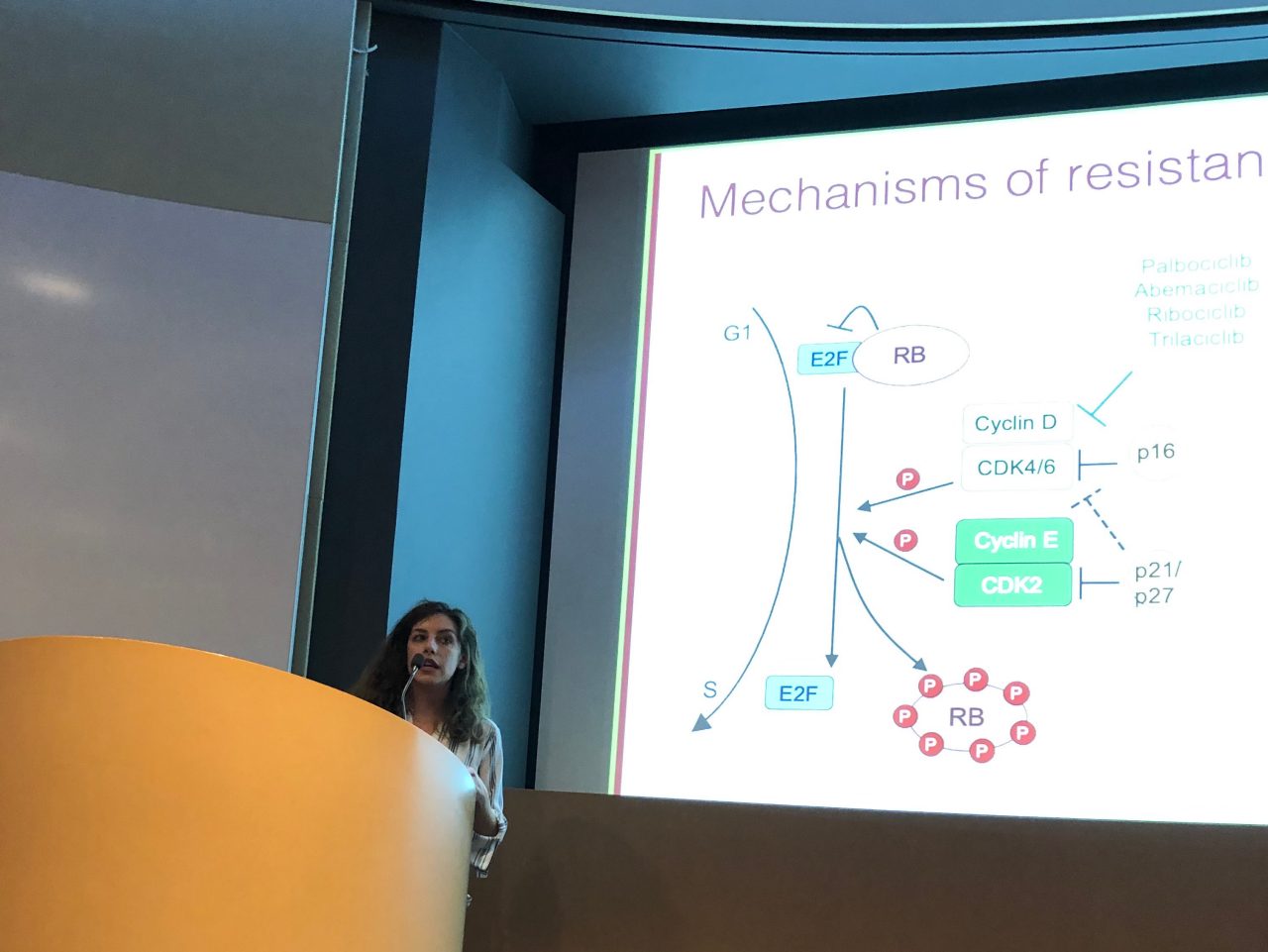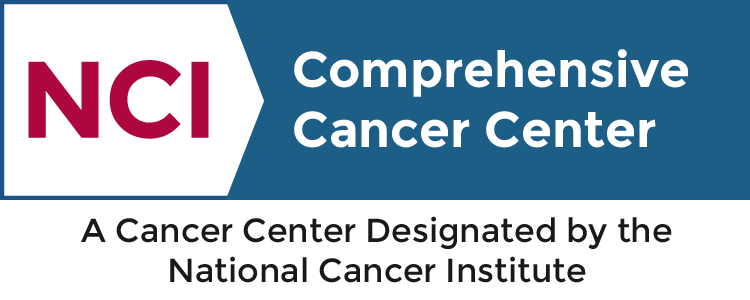Congratulations to Andrea Chaikovsky, who recently successfully defended her PhD! We caught up with the newly minted Dr. Chaikovsky to learn more.
Can you tell us about your work and its significance?
My research aimed to identify novel mechanisms that control cell division, particularly mechanisms that regulate the activity of CDK4 and CDK6 (together, CDK4/6), two proteins that drive the earliest stages of the cell division cycle. CDK4/6 are frequently hyperactive in cancer, leading to uncontrolled cell division. Thus, there has been a lot of excitement around new inhibitors that block the activity of CDK4/6. These inhibitors prevent cancer cells from dividing and thereby slow tumor growth. However, nearly every patient treated with CDK4/6 inhibitors eventually progresses, and in most cases, it is unclear why the tumors stop responding to the drug. Thus, we reasoned there must be mechanisms controlling CDK4/6 activity that had yet to be uncovered. Using an unbiased screening approach, we found that the loss of a protein called AMBRA1 causes cancer cells to become resistant to CDK4/6 inhibitors. We next sought to determine how AMBRA1 loss leads to resistance at the molecular level. Unexpectedly, we found that AMBRA1 promotes the degradation of D-type cyclins, critical binding partners of CDK4/6. Thus, in cells lacking AMBRA1, D-type cyclins accumulate to very high levels, leading to increased CDK4/6 activity, more cell proliferation, and faster tumor growth.
This work defines a long-sought-after mechanism of regulating the cell cycle. Although it was known that rapid degradation of D-type cyclins is critical for proper cell division, the proteins responsible for that degradation have been a matter of debate in the field. Now we know that AMBRA1 is one of the main regulators of the degradation of D-type cyclins. Thus, AMBRA1 is a key cell cycle gene that impacts tumor growth and the response of cancer cells to CDK4/6 inhibitors. With this knowledge in hand, future studies can aim to improve the efficacy of CDK4/6 inhibitors or perhaps develop new therapies based on AMBRA1's function.
How does one go about preparing a PhD defense?
A PhD defense is similar to other scientific talks, so preparation for me involved a lot of cutting and pasting of PowerPoint slides from previous presentations. Most of the editing focused on the structure of the talk and the introduction. The PhD defense is often presented to a wider audience, including some non-scientists, so I expanded the introduction to provide more background. Also, the defense is a longer talk than most talks I had given previously (45 minutes instead of 10-15 minutes), so I tried to make the overarching story clear and easy to follow. Once my slides were ready, I gave a practice talk with my lab and PI, who provided feedback and asked questions to prepare me for the Q&A at the end of the real defense. Finally, in the couple of days leading up to my defense, I skimmed through some reviews and research articles that most influenced my work to further prepare for the Q&A.
Who sits on the thesis committee?
The thesis committee consists of three faculty members chosen by the student, who meet with the student at least once a year to ensure they are on track to graduate. They provide feedback on the student's work and serve as additional mentors, both scientifically and professionally. In fact, it is the thesis committee that ultimately decides when the student is ready to graduate and defend their dissertation. I was grateful to have an excellent committee that improved my research and supported my professional goals throughout graduate school. For the defense, a fourth faculty member, also chosen by the student, serves as the chair to ensure that all requirements of the defense are met.
What was it like to defend your work in an open and closed-door session?
Defending my work in front of friends and family was both exciting and nerve-wracking! This was my first time presenting to friends and family, most of whom are non-scientists. It was a bit challenging to develop a talk that was interesting to those who knew the field but also clear to a wider audience. However, I think most of the nerves came from just knowing that friends and family were watching. That really drove home the significance of this moment.
In the closed-door session, each committee member asked a handful of questions. The questions ranged from clarifying questions about my data to ideas for future experiments to questions about how my work informs the field. Some people think this is when students are grilled, but that wasn't my experience. While there were a lot of questions, the session felt more like a conversation than a test. I think that was, in part, due to the relationship I developed with the faculty throughout my PhD. We were able to discuss science more like peers, and I felt that the committee was truly interested in hearing my ideas.
What will you remember most fondly about your PhD journey at Stanford?
Without question, I will most fondly remember the people in the Cancer Biology PhD program. The directors and admins are incredibly supportive of the students, and the students were some of my closest friends at Stanford. It's rare for students in a PhD program to be so close, but being able to share the graduate school experience with such an inspiring, friendly, and supportive community was one of the best parts of my PhD. I have so many great memories with them, from trips to Disneyland and Tahoe, to program retreats, to simple coffee breaks on campus. I'm very grateful to have taken this journey alongside them.
What is on the horizon for you now that you have successfully defended your PhD?
I just started a postdoc in the lab of Dr. Scott Lowe at the Memorial Sloan Kettering Cancer Center. I will be studying how cellular plasticity contributes to cancer initiation and progression, particularly in the context of pancreatic cancer.




